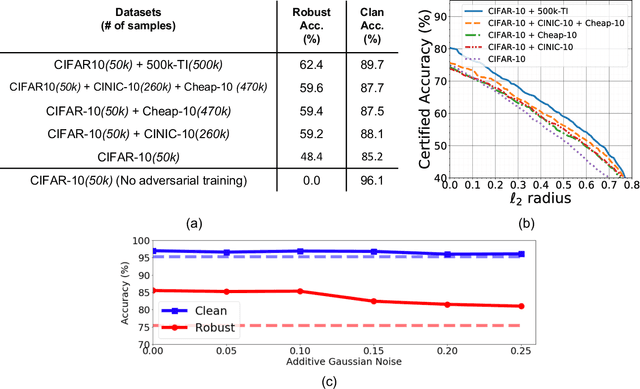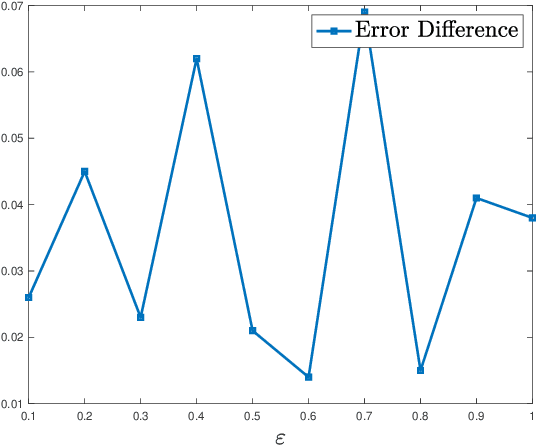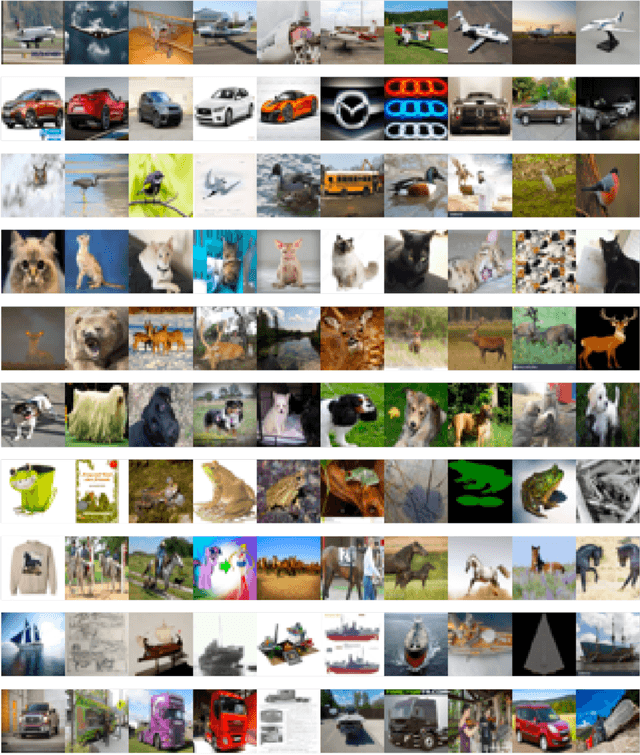Improving Adversarial Robustness via Unlabeled Out-of-Domain Data
Paper and Code
Jun 15, 2020



Data augmentation by incorporating cheap unlabeled data from multiple domains is a powerful way to improve prediction especially when there is limited labeled data. In this work, we investigate how adversarial robustness can be enhanced by leveraging out-of-domain unlabeled data. We demonstrate that for broad classes of distributions and classifiers, there exists a sample complexity gap between standard and robust classification. We quantify to what degree this gap can be bridged via leveraging unlabeled samples from a shifted domain by providing both upper and lower bounds. Moreover, we show settings where we achieve better adversarial robustness when the unlabeled data come from a shifted domain rather than the same domain as the labeled data. We also investigate how to leverage out-of-domain data when some structural information, such as sparsity, is shared between labeled and unlabeled domains. Experimentally, we augment two object recognition datasets (CIFAR-10 and SVHN) with easy to obtain and unlabeled out-of-domain data and demonstrate substantial improvement in the model's robustness against $\ell_\infty$ adversarial attacks on the original domain.
 Add to Chrome
Add to Chrome Add to Firefox
Add to Firefox Add to Edge
Add to Edge